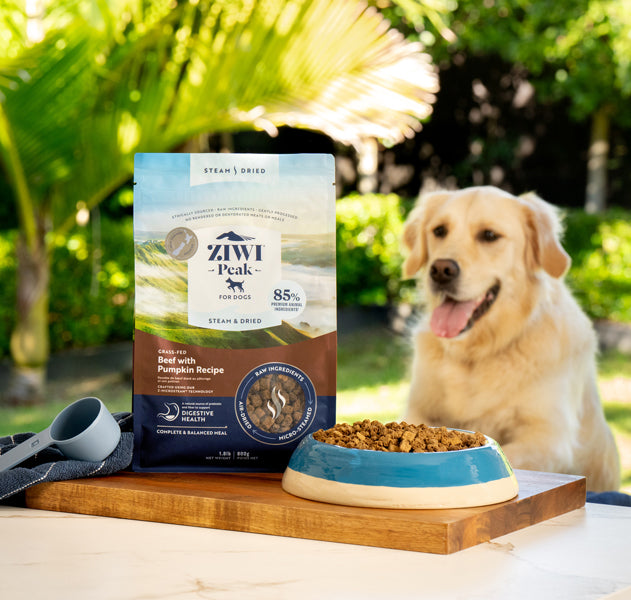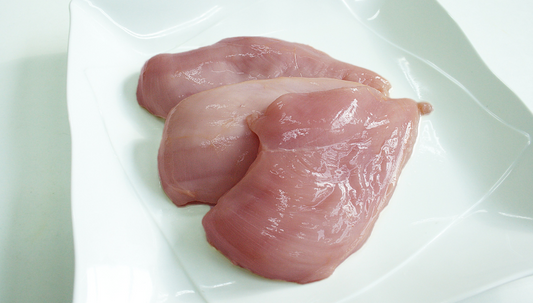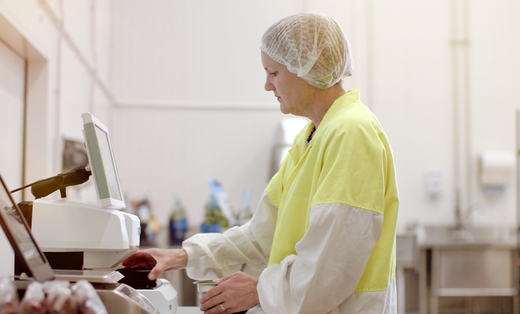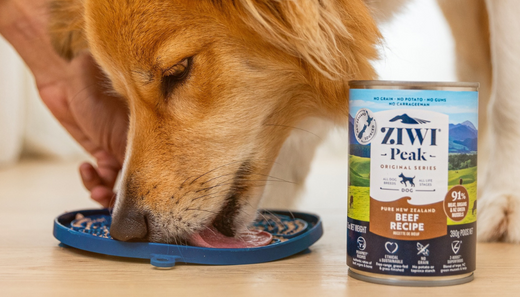
Can Dogs Eat Apples?
Apples are a popular and nutritious fruit that many of us enjoy, but did you know they can also be a great treat for your dog?
In this ultimate guide, we’ll explore the benefits of feeding apples to your dog, address safety concerns, and answer some frequently asked questions. We'll also highlight how ZIWI incorporates apples and other fruits into our premium pet food recipes.
Are Apples Good for Dogs: A List of Benefits
-
Rich in Nutrients
Apples are packed with essential vitamins and minerals that contribute to your dog’s overall health. They are a great source of:
- Vitamin A: Supports vision and immune function.
- Vitamin C: Boosts the immune system and promotes healthy skin.
- Fiber: Aids in digestion and helps maintain a healthy weight.
- Antioxidants: Combat free radicals and reduce inflammation.
- Low in Calories
Apples are low in calories and fat, making them a healthy treat option that won’t contribute to weight gain. This makes them suitable for dogs of all sizes, especially those that need to watch their calorie intake.
- Dental Health
Chewing on apple slices can help clean your dog’s teeth and freshen their breath. The natural crunch of apples can act as a mild abrasive, helping to remove plaque and tartar buildup.
- Hydration
Apples have a high water content, which helps keep your dog hydrated. This is particularly beneficial during hot weather or after exercise.
Are Apples Safe for Dogs? Here’s How to Safely Feed Apples to Your Dog
- Can Dogs Eat Apple Cores?
Dogs should not eat apple cores. The seeds contain cyanide, which is toxic, and the hard core can be a choking hazard or cause blockages. It's safe to give your dog apple slices, but always remove the core and seeds first.
Are Apple Seeds Poisonous for Dogs?
Apple seeds contain cyanogenic glycosides, which can release cyanide when chewed. While a few seeds are unlikely to cause harm, it’s best to remove all seeds and the core to ensure your dog’s safety. The core can also pose a choking hazard.
- Serve in Moderation
While apples are healthy, they should be given in moderation due to their sugar content. Overfeeding apples can lead to an upset stomach or diarrhea. As a general rule, small dogs can have a few small slices, while larger dogs can enjoy a few more pieces as an occasional treat.
- Introduce Gradually
If your dog hasn’t eaten apples before, introduce them gradually to ensure they don’t have any adverse reactions. Start with a small piece and monitor your dog for any signs of digestive upset.
- Fresh, Not Processed
Always opt for fresh apples rather than processed apple products, which can contain added sugars and preservatives that are not healthy for dogs.
The Benefits of Fruits in General for Dogs
Incorporating a variety of fruits into your dog’s diet can provide numerous health benefits. Fruits are rich in vitamins, minerals, and antioxidants that support various aspects of your dog’s health, including:
- Improved Digestion
Many fruits are high in dietary fiber, which aids in digestion and helps maintain regular bowel movements.
- Enhanced Immune System
Vitamins and antioxidants found in fruits boost the immune system, helping your dog fight off illnesses and recover more quickly from injuries or infections.
- Healthy Skin and Coat
Fruits rich in vitamins A and C, such as apples, can promote healthy skin and a shiny coat, keeping your dog looking and feeling their best.
- Reduced Inflammation
The anti-inflammatory properties of antioxidants found in fruits can help alleviate symptoms of arthritis and other inflammatory conditions, improving your dog's comfort and mobility.
Apples in ZIWI Recipes
At ZIWI, we are committed to providing natural and nutritious ingredients in our pet food. Apples play an important role in our recipes:
ZIWI Peak Steam & Dried Dog Food

Our Chicken with Orchard Fruits Steam & Dried recipe features not only apples but also pears, persimmons, blueberries, and kiwifruit. These fruits provide a rich array of vitamins, minerals, and antioxidants, ensuring a balanced and nutrient-dense meal for your dog.
Apple Pomace
Apple pomace, the fibrous byproduct of apple processing, is used as a natural binder in our air-dried and steam & dried recipes. It helps reduce crumbling and adds dietary fiber, supporting your dog’s digestive health.
FAQs: Common Questions About Feeding Apples to Dogs
Can dogs eat apple skin?
Yes, dogs can eat apple skins as they are a good source of fiber and nutrients. However, make sure to wash the apple thoroughly to remove any pesticides or chemicals.
How often can I give my dog apples?
Apples can be given as an occasional treat. A few slices a couple of times a week is a good guideline, but always consider your dog’s overall diet and health.
Can dogs eat green apples?
Yes, dogs can eat green apples. They are safe and can be a healthy treat, providing fiber and vitamins A and C. However, make sure to remove the core and seeds, as they can be harmful. Serve the apple in small, manageable pieces to avoid choking.
Can puppies eat apples?
Yes, puppies can eat apples, but they should be introduced gradually and in small pieces to avoid choking hazards. Always supervise your puppy when they are eating apples.
Are there any risks to feeding apples to dogs?
The main risks are choking hazards from the core and seeds, and digestive upset if fed in large quantities. Always remove the seeds and core and serve apples in moderation.
ZIWI: Natural Nutrition for Your Dog
At ZIWI, we believe in providing natural, wholesome nutrition for your pets. Incorporating apples and other fruits into your dog’s diet can complement the balanced nutrients provided by our Air-dried, Steam & Dried, and canned wet foods. Our recipes are crafted with ethically sourced ingredients, ensuring your dog receives the highest quality nutrition.
For personalized feeding guidance, our feeding calculator is an excellent tool to determine the right portion sizes based on your dog’s unique needs. Always consult your veterinarian when introducing new foods or treats into your dog's diet to ensure they are safe and appropriate.
At ZIWI, we are dedicated to supporting you in providing the best care for your four-legged friends. Remember, a balanced and natural diet is key to a thriving pet. For more information on our products and feeding advice, visit our website or contact our dedicated consumer care team.









